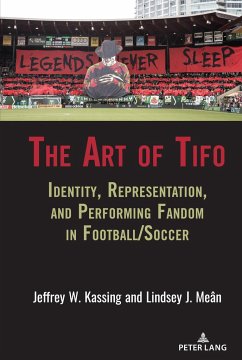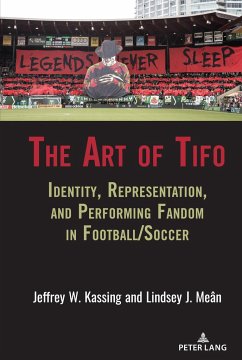
Television, Football and Audience
Fandom Culture of European Football Teams
Versandkostenfrei!
Versandfertig in 6-10 Tagen
56,99 €
inkl. MwSt.

PAYBACK Punkte
28 °P sammeln!
The debates on the implications of mediated European football as a popular culture in modern societies have drawn divergent viewpoints from scholars and critics alike. Some have argued that football serves as a social currency of mass mobilization, improving public health, education and youth engagement. Others believed that football has been associated with social problems such as hooliganism, violence, social division, and economic exploitation. Regardless of this divide, fandom of European football is high and popular among global media audience . In view of the unique socio-cultural charac...
The debates on the implications of mediated European football as a popular culture in modern societies have drawn divergent viewpoints from scholars and critics alike. Some have argued that football serves as a social currency of mass mobilization, improving public health, education and youth engagement. Others believed that football has been associated with social problems such as hooliganism, violence, social division, and economic exploitation. Regardless of this divide, fandom of European football is high and popular among global media audience . In view of the unique socio-cultural character of this audience, it is believed that football fandom can be used to address social problems such as drug addiction, cultism and terrorism. Also, it could be deployed as tool of advocacy for social inclusion, gender equality , youth empowerment and the fight against racism and poverty.












